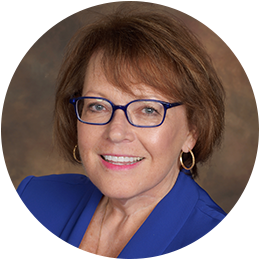
Are you new in your leadership position in credentialing, medical staff services, quality or enrollment? Over the past year, I’ve noticed lots of changes in these positions and have worked with a number of individuals who have taken on new leadership positions – either within their current organization or a new organization.
I remember years ago when I moved across the country to a new position in a new state (California) as a Director, Medical Staff Services. All my new organization knew about me was that my references were good and that I had sufficient experience – but they didn’t really know what type of a leader I would be. The physician leaders didn’t know me, the staff in the medical staff office didn’t either – and I knew that I had to establish some trust with both groups in order to be effective. Additionally, within three months, my hospital acquired another hospital and I became responsible for two medical staff offices – as well as quality, risk management, and utilization management for both hospitals. There were significant operational changes that had to be made, but getting those changes made without a trusted relationship would be difficult, if not impossible. I was fortunate to have worked with some great mentors during my career – and those examples helped me considerably during this time period.
How do you build that trust?
When you read articles about building trust, one of the fundamental elements is credibility. People are more likely to trust and be persuaded by people whom they regard as credible. You may immediately have some credibility in a new organization based on your history of previous positions, or because of certifications that you have that show an area of related expertise. That gives you a starting point upon which to build trust. But the reality is that trust has to be built over time. Here are some of the key elements necessary to becoming a trusted advisor:
- In order to build trust, you must make building relationships a priority. Your new CMO or the Chair of the Credentials Committee isn’t necessarily going to trust you just because you have good references. You will need to spend time with these individuals in order to build a trusted relationship.
- Be reliable and consistent. That means being true to your word and following through with your actions.
- Always be straightforward and honest.
- Learn how to communicate effectively with others – and learn to actively listen. If you have read The 7 Habits of Highly Effective People (Stephen Covey) you will know that you must seek to understand first, before making yourself understood. (I highly recommend this book!)
- Take time to make decisions and think before acting too quickly. Always do what you believe to be right.
- If you make a mistake, admit it. All of us make mistakes. Don’t blame others. It’s much better to take responsibility so that you can clear the air and move on.
- Don’t self-promote – you will ultimately be trusted by what you do and how you conduct yourself. Actions speak much louder than words.
- Learn how to say “no.” Don’t make commitments that are impossible to achieve given the time/resources that you have available.
Being a trusted advisor is a position that I believe most leaders want to attain because it allows them to be more valuable to their organization. There is a real sense of fulfillment knowing that people in your organization seek your guidance and expertise.
